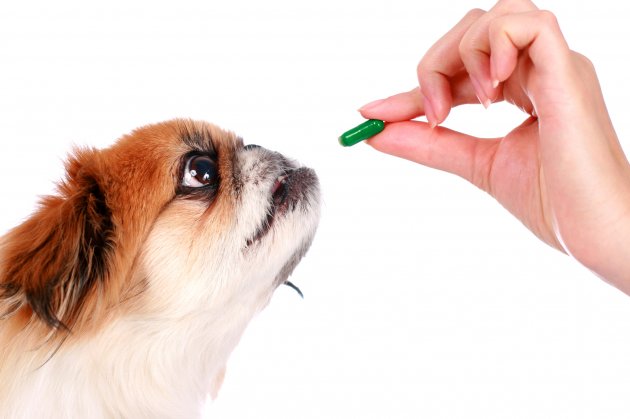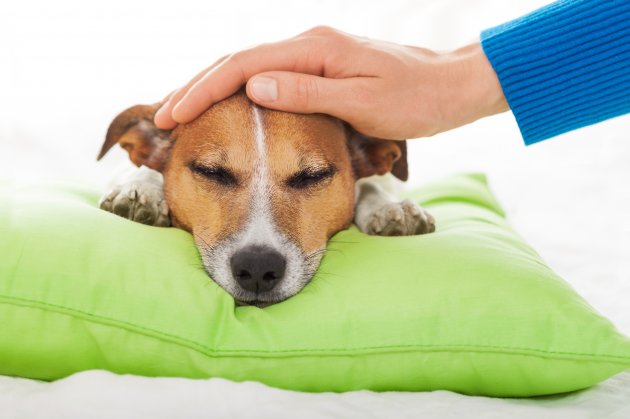If your pet is sick or in pain, you want to do anything possible to make them healthy again. Some people will try to treat their animals at home themselves. This will save you a little bit of money in the long run, but you could end up causing your pet more problems than if you would have just taken them to the vet. There are many possible problems with treating your pet at home that you could encounter. This article will explain some of the risks of at-home pet care.
Why you should not treat your pet at home
Your veterinarian has devoted many years of their lives to going to school to be able to diagnose and treat your pets accurately. If you want your pet to get better quickly, it is best to leave their care in the hands of an expert. While everyone has googled their pet's symptoms and tried to give their pet some relief at home, there are many dangers with trying to treat your pet at home.
Your veterinarian has 8+ years of education dedicated to learning all about these different species and making sure that the medications that they are prescribing your pet will not cause them any problems. Before you give your pet any at-home treatment, it is best to consult with your veterinarian.
Risks of treating your pets at home:
1. Over the counter medications are often dangerous
Pets are not just small people; their bodies are actually very different, and they require very different things when it comes to medicine. While there are some of the same medications that you can give to your dog or cat that people also take, most people's medication should be off-limits for your pets.
Over the counter pain medication is a very common medication people give their pets that they should not. These medications can cause serious problems if given to your dog or cat. Tylenol can be very deadly in cats, even with just one dosage. It is best to let your veterinarian prescribe your pets the correct medication.

2. Some medications may make the problem worse
If you have any medicine leftover from another pet and you give it to a different pet, you may not be treating the problem. Most people take the same dosage of medication no matter their size, but pets can significantly vary in size and what is used to treat a 5-pound dog is not enough for a 100-pound dog. And would be toxic if the small dog was given the big dog's medication.
Some medications should also not be used in certain situations, such as steroids should never be given to a pet who is also taking an NSAID for pain. This can cause GI ulcers and many other problems. Certain medications and antibiotics are toxic to some animals while others can still cause unwanted problems.
3. Your pet may not get better
When you try to treat your pet at home, they may not get better. This would delay them from getting better. Your pet may have diarrhea due to something they have eaten, but there may be something stuck in their intestines, causing these problems. By taking your pet to a vet to be examined, this can be caught much earlier, and treatment started right away. By delaying treatment, you may actually be making the problem much worse than it could have been.
If you want your pet to recover quickly, you need to start to treat your pet right. Diseases such as bloat, toxic exposure or internal bleeding needs to be seen and treated right away by your veterinarian for them to have a chance at recovering.
4. You may be treating the wrong problem
If you are looking online for what is wrong with your pet, you may find a list of signs that are very similar to what your pet may be showing. While most signs can be seen in many different diseases, you may think that your pet has one disease when they actually have something totally different. These different diseases may be treated totally differently. So, by treating your pet at home, you may actually not be treating the correct problem that your pet has.

5. Some Homeopathic remedies are dangerous to pets
Most at-home treatments do not include traditional medication. While some homeopathic remedies do work for pets, some are actually very dangerous. Certain essential oils that are safe for human use and consumption but are very toxic to pets. By using a homeopathic remedy on your pet without your vet's advice, it could potentially be fatal to your pet.
6. Some medications interact with other medications
If your pet is currently taking medication, there may be other medications that should not be taken with these medicines. Your veterinarian will make sure that any medications that your pet is currently taking will not interact with any new medications that they start your pet on.

When should I see my vet immediately?
If your pet has any of the following symptoms, it is best not to try to treat your pet at home, as this can make the problem much worse.
- Seizure
- Vomiting that will not stop
- Bloody diarrhea
- Bloody vomit
- Not eating and lethargic
- Bloated or distended abdomen
- Bloody urine
- Respiratory distress
If you notice any of these signs in your pet, it is best to get them to your vet as soon as possible, as they need emergency medical care.
While there may be a few times that you can treat your pet at home and they will get better, it is always best to have your veterinarian examine your pet and prescribe them the right medication that they need for their condition. Before giving your pet any over the counter medication, medication prescribed to a different pet or homeopathic remedies, consult your veterinarian. This will make sure that your pet recovers quickly and returns to their happy and healthy life.